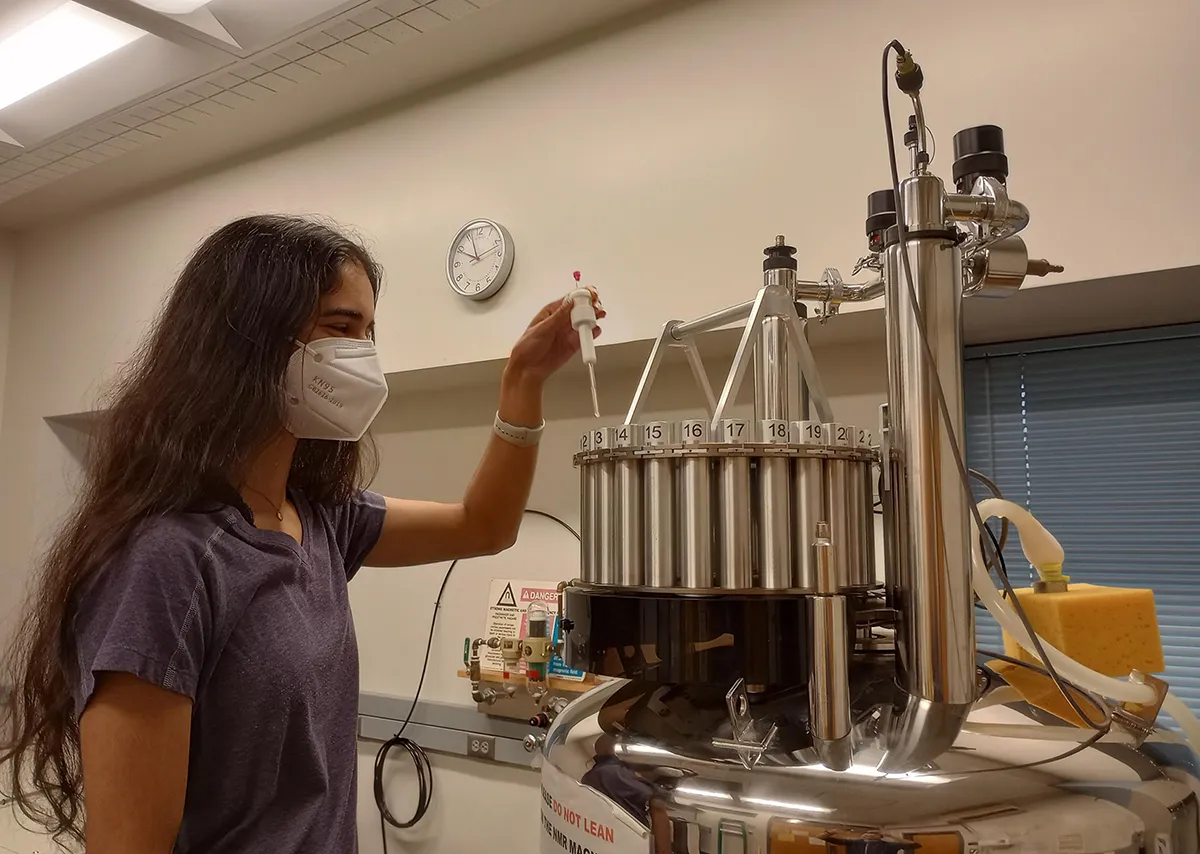Ithaca College’s chemistry department has taken advantage of a $250,000 grant from the National Science Foundation (NSF) to upgrade its Nuclear Magnetic Resonance (NMR) spectrometer. A Nuclear Magnetic Resonance spectrometer is an instrument used to learn about the structure of molecules.
“The technology is exactly the same as an MRI,” said Mike Haaf, professor and chair of the chemistry department. “It’s a giant magnet, but instead of putting a person in, you put in a sample. The strong magnetic field allows you to interrogate the structure and learn about it.”
Haaf, along with Associate Professor Scott Ulrich and Professor Anna Larsen, wrote the grant proposal and made sure to highlight how upgrading the machine would benefit IC students’ classroom experience, as well as their research.
“We are a department that strongly values undergraduate research,” Ulrich said.
Chemistry students often use the NMR spectrometer during classes in their first year on campus, and students engaging in research — regardless of their major — routinely use it by themselves once they get comfortable with it.
